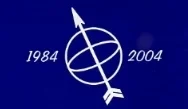June91
archive > Log > Log1991
Hong Kong
Technology for ports and ships

S. J. SINGH, MNI, principal lecturer at the Hong Kong Polytechnic, Department of Nautical Studies, and chairman of the International Maritime Lecturers' Association, started by outlining the difficulties ships experience today through what he termed 'incrementalism' where, after a basic system is installed, various bits and pieces are added on, which invariably leads to problems with interfacing. This point was well illustrated by the difficulties with connecting his computer to the video display projector at our venue!
He then pointed out that the changing attitudes towards funding for maritime work in the Hong Kong Polytechnic stimulated a greater need for emphasis on commercially funded development in recent years. The Maritime Specialist Services Unit (MSSU), an informal group co-ordinated by the associate director for industrial liaison and external relations, is one avenue through which the maritime industry may access the Polytechnic for assistance with industrial research and development projects.
The main problem, he went on to say, was understanding relationships, in particular the relationship between technology, people and the functions they are required to perform. Very often in designing equipment the problem comes back to misunderstanding this relationship. Sometimes problems may not arise only from bad design, but may be due to lack of instrumentation which caters to a specific need that a particular organisation may have. This is where the sort of work that the MSSU is now doing comes in, particularly in the context of maritime operations.
He added that it wasn't the intention to duplicate or compete with existing industry but merely go in and meet a demand where a solution is not already available from domestic sources at the right price.
Hence, the primary objectives of the MSSU are: to work with maritime and port related industry; endeavour to develop specialist services; and to co-ordinate a network of local and international expertise. The resources available are: the simulator environment; an international network of specialists; and a supportive institutional network.
Current and past activities include: ships' trials, mathematical models for analysis of ship behaviour, development of nocturnal detection systems, casualty investigation, specialist training courses, development of interfaces for shipboard instrumentation and formulation of functional specifications.
He then went on to describe details from some of the projects undertaken. One interesting result of a study into casualties amongst local craft in Hong Kong, was that there was a significantly high probability of vessels colliding when the ratio of the lengths or GRT was 0.7.
This very interesting talk led to several questions on such subjects as collision interaction. Is Hong Kong more safe or less safe for local craft than other places? (The answer is less safe simply because of the very high traffic density.) The final question concerned standardisation for equipment and interfaces to which the speaker stated that in his opinion it was definitely coming.
Contributed by P. R. Owen, FNI
Seaways June 1991

